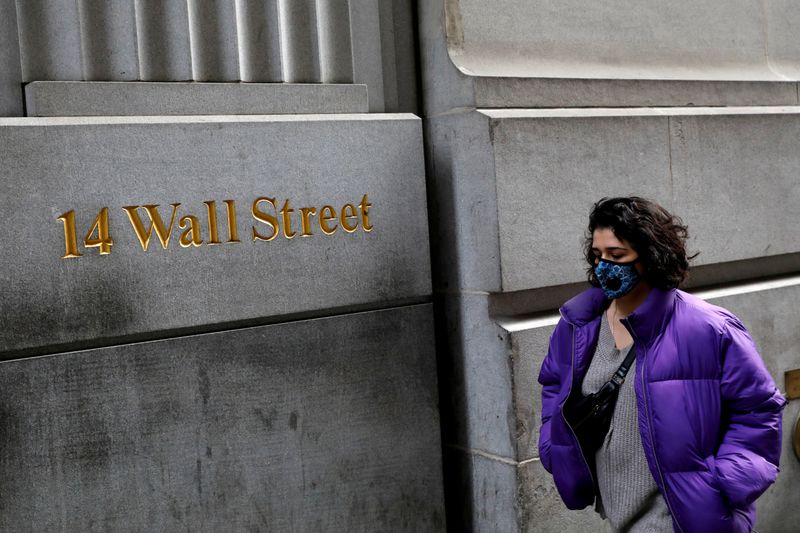 © © Reuters
© © Reuters By Noreen Burke
Investing.com — This week’s report on U.S. consumer inflation figures will be closely watched after the Federal Reserve’s recent policy shift to adopt average inflation targeting. The shakeout in stock markets looks set to continue as traders return after the U.S. Labor Day holiday. The European Central Bank will hold its latest policy meeting on Thursday against a background of slowing inflation and a strengthening euro. Brexit talks between the European Union and UK will resume on Tuesday with hopes for a trade deal before the end-2020 deadline diminishing fast. Meanwhile, China’s August trade data will give more insight in to the speed of the recovery from the pandemic in the world’s number-two economy. Here’s what you need to know to start your week.
- U.S. data
U.S. inflation seems to have little chance of hitting 2% anytime soon and Friday’s inflation figures for August are expected to show core CPI rising month-on-month and on a year-over-year basis.
The Fed, which is now aiming for an average has said it won’t worry about inflation running above its 2% target, which is seen as giving it room to keep interest rates low for as long as it wants.
That’s good news for stock markets, property and other sectors that benefit from cheap money.
Market participants will also be watching Thursday’s report on for fresh insights into the strength of the recovery in the labor market after the August showed that hiring slowed again last month as financial aid from the government dried up.
- Tech wreck looks set to continue
Last week’s stock market shakeout looks set to continue as traders return to their desks after the U.S. Labor Day holiday on Monday amid persistent concerns about high valuations and an uneven economic recovery.
Following a steep selloff on Thursday that carried over into Friday, the three major indexes regained some ground late Friday to close well off the lows of the day, though trading remained volatile.
Thursday’s sell-off already reflected investor fears that valuations for mega-cap tech stocks had overheated and these worries were exacerbated on Friday when the Financial Times reported that options trading by Japan’s Softbank (OTC:) had inflated these stocks.
The selloff could be a preview for a rocky two months to come as institutional investors return from summer vacations and focus their attention the potential economic pitfalls in the year ahead.
- ECB meeting
ECB officials will have plenty to discuss at their on Thursday after the hit $1.20 for the first time since 2018 and euro zone turned negative in August for the first time since 2016. The slide into deflation is a red flag for the central bank, which targets annual inflation of close to, but just below 2%.
Yet it may be premature for the ECB to announce any major new steps on Thursday.
The euro has been boosted by a broadly weaker dollar and improved sentiment towards the European Union’s 750 billion-euro pandemic rescue fund. As such, any impact on inflation may be temporary.
But in the longer term, the ECB may be forced to reevaluate its monetary policy given the Fed’s shift to tolerate higher inflation, which could weigh on the dollar for years to come.
- Brexit and UK GDP
Brexit talks between UK and EU negotiators are due to resume in London on Tuesday, but an imminent breakthrough seems unlikely.
Talks have stalled over Britain’s demands on fishing quotas and its desire to use state aid to build up its tech sector.
Britain left the EU on Jan. 31 but talks have so far made little headway on agreeing a new trade deal for when the transition agreement ends on Dec. 31. There is less than a month to go before the Oct. 2 deadline for a deal which would then have to be ratified at an EU summit.
Separately, data on Friday is expected to show that the UK economy again July, given that many lockdown measures were eased during the month.
- China trade data
Trade figures out of China on Monday are expected to show rose solidly for a second straight month in August, while edged back into growth.
Chinese exports have not been as severely affected by the global slowdown as some analysts had feared and are set to be a key driver in the nation’s economic recovery.
Already high tensions between Washington and Beijing are expected to escalate ahead of the U.S. presidential election in November. China remains well behind on its pledge to boost purchases of U.S. goods under the Phase 1 trade deal that took effect in February.
–Reuters contributed to this report




0 Comments:
Post a Comment